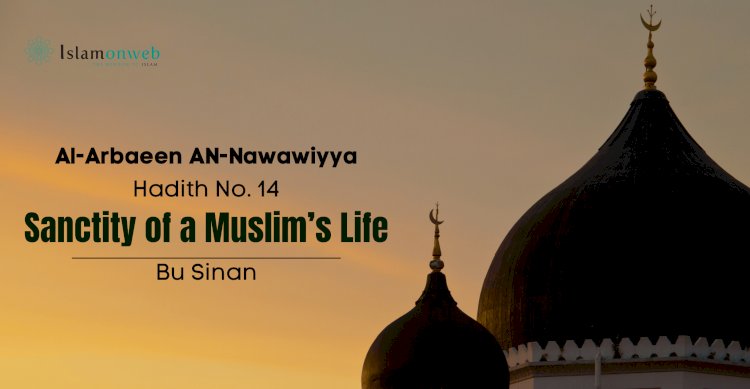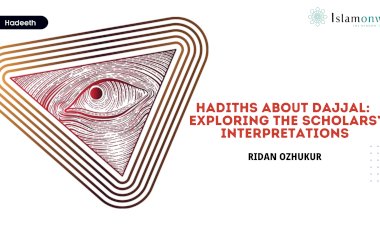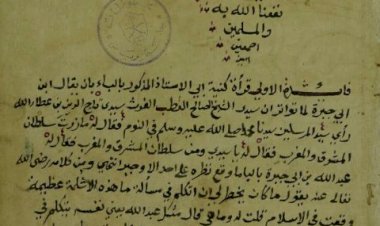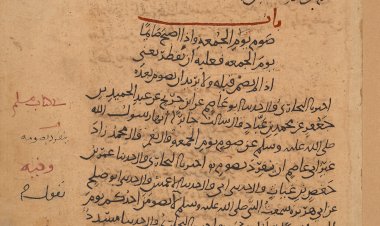Hadith No. 14: Sanctity of a Muslim’s Life
عَنِ ابْنِ مَسْعُودٍ رَضِيَ اللَّهُ عَنْهُ قَالَ:
قَالَ رَسُولُ اللَّهِ صَلَّى اللَّهُ عَلَيْهِ وَسَلَّمَ:
«لَا يَحِلُّ دَمُ امْرِئٍ مُسْلِمٍ إِلَّا بِإِحْدَى ثَلَاثٍ: الثَّيِّبُ الزَّانِي، وَالنَّفْسُ بِالنَّفْسِ، وَالتَّارِكُ لِدِينِهِ الْمُفَارِقُ لِلْجَمَاعَةِ.»
رواه البخاري ومسلم.
Translation
Narrated Ibn Masʿūd (may Allah be pleased with him):
The Messenger of Allah (peace and blessings be upon him) said:
“The blood of a Muslim is not lawful except in one of three cases: a married person who commits adultery, a life for a life, and one who forsakes his religion and abandons the community.”[1]
Introduction
This ḥadīth lays down one of the fundamental principles of Islamic law (Sharīʿah) — the inviolability of human life. It affirms that the life of a Muslim cannot be taken except under the strictest legal and moral conditions prescribed by Allah and His Messenger ﷺ.
This hadith connects directly to the Qur’ānic command:
{وَلَا تَقْتُلُوا النَّفْسَ الَّتِي حَرَّمَ اللَّهُ إِلَّا بِالْحَقِّ}
“And do not kill the soul which Allah has forbidden, except by right.”
(Sūrat al-Isrāʾ, 17:33)
Through this concise yet powerful statement, the Prophet ﷺ outlined the only three legitimate grounds where capital punishment may be lawfully carried out within an Islamic judicial framework — each connected to the protection of society’s moral, legal, and spiritual order.
The Prophet’s statement “lā yaḥill” means “it is not permissible” or “it is not allowed.” This phrase establishes a general prohibition: the blood of a Muslim is sacred and inviolable by default. The expression does not contradict the obligation of execution in the three specific cases mentioned afterward; for what is lawful in those exceptional cases may indeed become obligatory by divine command.
The word “dam” (blood) here implies the shedding of blood—that is, taking a life or execution.
The term “imriʾ” (امرئ) refers to a male person; it is used here and in similar contexts due to the general linguistic norm in Arabic where masculine form represents humankind in legal discourse.
In another narration, it adds:
“...who testifies that there is no deity but Allah and that I am the Messenger of Allah.”
This additional clause clarifies that the protection applies to one who has embraced Islam, for faith is the basis of inviolability. Thus, the life of a Muslim is protected by law and conscience. The phrase excludes the ḥarbī (combatant non-Muslim), whose life may be lawfully taken during legitimate warfare, provided he is an adult of sound mind.
However, this does not apply to the dhimmī (non-Muslim under Muslim protection), whose life is also safeguarded under the covenant of the Islamic state, and to kill such a person is a major sin as the Prophet ﷺ warned:
“Whoever kills a muʿāhad (a non-Muslim under covenant) shall not smell the fragrance of Paradise.”[2]
“Except in three cases (illā bi-iḥdā thalāth)”
This phrase introduces the only legitimate exceptions to the general rule. The shedding of blood is permitted in these cases because of overriding public interest (maṣlaḥah ʿāmmah) — to preserve life, lineage, and religion.
Hence, it is the duty of the legitimate authority (the Imām or ruler) to carry out these penalties through due judicial process, not individuals by their own judgment.
- The Married Adulterer (ath-thayyib az-zānī)
The word “thayyib” refers to one who has previously been married and consummated that marriage. In the context of this hadith, it refers to the muḥṣan — the free, adult, sane man or woman who has engaged in lawful intercourse within a valid marriage.
The ḥadd (legal punishment) for such a person who later commits adultery is stoning to death (rajm), as unanimously agreed upon by the scholars. This ruling is based on authentic Sunnah and the practice of the Prophet ﷺ, who applied it to both men and women.
Conditions for Iḥṣān (legal marital status):
- The person must be free (not a slave).
- Adult and sane.
- Must have engaged in lawful intercourse within a valid marriage.
- The previous marriage must have been valid, not invalid (fāsid) or temporary.
- The person must have committed the act of zinā (adultery) with full awareness and without coercion or ambiguity.
If these conditions are not met, the punishment becomes flogging (100 lashes), as mentioned in the Qur’an:
“The woman and the man guilty of adultery, flog each of them with a hundred lashes, and do not let compassion move you in carrying out Allah’s law if you truly believe in Allah and the Last Day.”
(Surah an-Nūr, 24:2)
The term zānī refers to one who commits unlawful sexual intercourse in a way that fulfills the conditions for ḥadd punishment — that is, complete penetration without doubt or legal ambiguity. Anal intercourse is more heinous, and the punishment applies. But the prescribed sentence for the passive partner (other than one’s lawful spouse) is flogging and exile, even if he is muḥṣan as the legal condition of iḥṣān (lawful marital penetration) cannot be fulfilled in such an act[3].
The ḥadd of adultery was legislated to protect honour (ʿird), lineage (nasab), and moral integrity. When a person who has experienced the sanctity of marriage transgresses, his sin is far more serious because it corrupts the moral fabric of society and threatens family structure.
The Prophet ﷺ implemented this punishment in authentic cases, such as Māʿiz al-Aslamī and the Ghamīdiyyah woman, both of whom confessed to adultery. These applications were not out of cruelty but out of justice, deterrence, and moral purification.
If this divine legislation were properly implemented with all its strict evidentiary requirements (four upright witnesses to the act itself or voluntary confession), societies would be shielded from:
- The spread of illicit relationships and family betrayal,
- The confusion of lineage and inheritance,
- The psychological and social problems faced by illegitimate children,
- The disintegration of family trust.
Indeed, the ḥadd of adultery, though legislated, was intended to be rarely executed in Islamic law. The evidentiary standard for establishing the crime is exceptionally stringent — it requires four trustworthy witnesses who have directly seen the act of intercourse, not merely suspicion or circumstantial evidence. This condition was set to make false accusations practically impossible and to protect personal honour.
The rare occasions where this penalty was applied were based not on investigation or witness testimony, but on voluntary confession repeated several times by the sinner seeking purification. Such was the case of Māʿiz al-Aslamī, who came to the Prophet ﷺ confessing to adultery. The Prophet initially turned him away multiple times, asking him whether he was sane or under the influence, and even suggesting he might simply have kissed or embraced a woman — hoping he would retract his confession. But Māʿiz insisted, confessing four times before witnesses, seeking atonement. Similarly, the Ghamīdiyyah woman approached the Prophet ﷺ confessing to adultery while pregnant. The Prophet deferred the punishment until after she gave birth and nursed the child, and even then, when she insisted, he ensured that the community prayed for her, saying:
“She has repented with such a repentance that if it were distributed among seventy people of Madinah, it would suffice them.”[4]
These incidents demonstrate that the purpose of the ḥadd was not to seek people’s faults, but to maintain the sanctity of society and encourage personal repentance and concealment, leaving public punishment only for the most undeniable and self-confessed cases — making its actual execution extraordinarily rare in Islamic history.
Moreover, the Prophet ﷺ strongly encouraged believers to conceal their sins and repent privately rather than expose themselves. The Prophet ﷺ explicitly said:
«أَيُّهَا النَّاسُ، قَدْ آنَ لَكُمْ أَنْ تَنْتَهُوا عَنْ حُدُودِ اللَّهِ، مَنْ أَصَابَ مِنْ هَذِهِ الْقَاذُورَاتِ شَيْئًا، فَلْيَسْتَتِرْ بِسِتْرِ اللَّهِ، فَإِنَّهُ مَنْ يُبْدِي لَنَا صَفْحَتَهُ نُقِمْ عَلَيْهِ كِتَابَ اللَّهِ»
“O people! It is time for you to stop transgressing the limits set by Allah. Whoever among you falls into any of these indecencies, let him conceal himself with the concealment of Allah, for whoever exposes himself to us, we will apply to him the Book of Allah.”[5]
“And the life for the life (an-nafsu bin-nafs)”
The phrase “an-nafsu bin-nafs” means that a person’s life may be lawfully taken in retribution for murder, but only when all the established conditions of qiṣāṣ (legal retaliation) are fulfilled. The word nafs (soul/life) here it refers to the human soul whose sanctity is emphasised throughout the Qur’an and Sunnah.
The right of execution through qiṣāṣ is not left to individuals or emotions but is regulated by precise legal criteria. The classical jurists mention several key conditions, including:
The killing must be intentional, deliberate, and unjustified (ʿamdan, muḥḍan, ʿudwānan li-dhātih). The perpetrator must have deliberately targeted a specific person (or one among a defined group) intending to kill using a weapon or instrument that normally causes death[6]. If the act was accidental or carried out without the intent to kill, then qiṣāṣ does not apply — only diyah (financial compensation).
The Prophet ﷺ himself applied qiṣāṣ in such a case: when a Jewish woman murdered a young girl by crushing her head between two stones, and upon her confession, the Prophet ﷺ ordered that her head be crushed in the same manner[7].
The victim must be protected (maʿṣūm al-dam) — meaning their life is safeguarded by Islam either through faith (being a Muslim) or lawful protection such as covenant (dhimmah or amān), although there are difference of opinion among scholars in details. Thus, even a non-Muslim under protection enjoys full security; their unlawful killing also warrants qiṣāṣ.
The murderer must be legally accountable (mukallaf) — that is, sane, mature, and subject to the rulings of Islam. A child, insane person, or coerced individual is exempt from qiṣāṣ.
Islam views the sanctity of life as sacred. Unlawful killing is one of the gravest sins in the sight of Allah. The Prophet ﷺ said:
“Every Muslim’s blood, property, and honour are sacred to another Muslim.”[8]
And Allah warns:
{وَمَنْ يَقْتُلْ مُؤْمِنًا مُتَعَمِّدًا فَجَزَاؤُهُ جَهَنَّمُ خَالِدًا فِيهَا وَغَضِبَ اللَّهُ عَلَيْهِ وَلَعَنَهُ وَأَعَدَّ لَهُ عَذَابًا عَظِيمًا}
“Whoever kills a believer intentionally — his recompense is Hell, to abide therein forever, and the wrath and curse of Allah are upon him, and a tremendous punishment is prepared for him.”
(Sūrat an-Nisāʾ, 4:93)
In worldly terms, Allah has prescribed qiṣāṣ to prevent bloodshed and restore balance:
{يَا أَيُّهَا الَّذِينَ آمَنُوا كُتِبَ عَلَيْكُمُ الْقِصَاصُ فِي الْقَتْلَى ... فَمَنْ عُفِيَ لَهُ مِنْ أَخِيهِ شَيْءٌ فَاتِّبَاعٌ بِالْمَعْرُوفِ وَأَدَاءٌ إِلَيْهِ بِإِحْسَانٍ}
“O you who believe! Prescribed for you is retribution for those murdered... But whoever is pardoned by his brother, then there should be a suitable demand and compensation paid with kindness.”
(Sūrat al-Baqarah, 2:178)
This verse establishes three layers of mercy within justice:
- Retaliation (qiṣāṣ) — a right of the victim’s heirs,
- Forgiveness with compensation (diyah), or
- Complete pardon for Allah’s sake.
Hence, while the Sharīʿah affirms the right of retribution, it equally elevates forgiveness and restorative justice as higher virtues. The famous divine statement confirms this wisdom:
{وَلَكُمْ فِي الْقِصَاصِ حَيَاةٌ يَا أُولِي الْأَلْبَابِ}
“And there is for you in retribution a preservation of life, O people of reason.”
(Sūrat al-Baqarah, 2:179)
When justice is enforced, murder is deterred; when mercy is shown, hearts are purified. Thus, qiṣāṣ sustains both life and moral balance in society.
In every age, certain voices question the morality of capital punishment, portraying it as cruelty or backwardness. Yet Islam presents qiṣāṣ not as vengeance but as measured justice rooted in divine wisdom. Those who advocate abolishing the death penalty often emphasise the criminal’s right to life while neglecting the victim’s right to justice and the society’s right to safety.
Islam, by contrast, views qiṣāṣ as both a deterrent and a moral equaliser — it restrains aggression, comforts the oppressed, and prevents endless cycles of revenge. The verse in al-Māʾidah (5:45) declares:
“We prescribed for them therein: a life for a life, an eye for an eye, a nose for a nose, an ear for an ear, a tooth for a tooth, and for wounds equal retaliation. But whoever forgives it, that shall be an expiation for him.”
This divine system reflects a justice that is balanced, compassionate, and human — upholding the sanctity of every life while ensuring that those who violate it face a proportionate consequence. If qiṣāṣ were implemented in modern societies with its full moral and procedural safeguards, security and peace would prevail, and countless acts of violence would be prevented.
“And the one who abandons his religion and separates from the community”
(at-tāriku li-dīnihi al-mufāriqu lil-jamāʿah)
The phrase refers primarily to the apostate (al-murtadd) — the person who was a Muslim and then deliberately leaves Islam, either inwardly through belief or outwardly through word or deed. In a version recorded by Muslim, the Prophet ﷺ said explicitly:
“...the one who abandons Islam.”
This clarifies that the discussion concerns a Muslim who intentionally severs his connection with the faith, not a non-Muslim changing from one religion to another.
Apostasy (ridda) may occur:
- Inwardly — by belief or conviction that contradicts the fundamentals of faith, such as doubting Allah’s oneness, denying the Prophethood of Muḥammad ﷺ, or rejecting the truth of the Qur’an. Even if such disbelief is concealed, it constitutes inner apostasy.
- Outwardly — by speech or action that clearly signifies rejection or mockery of Islam. Examples cited by the jurists include:
- Prostrating to a creature in worship,
- Slaughtering an animal as an act of devotion to anyone besides Allah,
- Throwing the Qur’an or hadith literature into a filthy place,
- Disparaging the Sharīʿah with words such as “What kind of law is this?”,
- Insulting the Prophet ﷺ or ridiculing any command of the religion.
Such acts, when done intentionally and without coercion, represent a conscious breach of faith and are treated as apostasy, whether or not the person claims belief in the heart — because their actions indicate denial of submission or rejection of divine law, both of which are incompatible with faith.
The consensus among classical jurists is that apostasy constitutes a capital offence when confirmed and unrepented, based on the hadith: Imām al-Shāfiʿī and many others therefore held that both male and female apostates are liable to capital punishment, after due process and opportunity to repent. But there is difference of opinion among scholars regarding female[9].
The Clause “Separates from the Community (al-Jamāʿah)”
The second half of the phrase — “mufāriq lil-jamāʿah” — broadens the scope beyond theological apostasy to include those who rebel against the Muslim community in belief or conduct. It refers to anyone who turns against the unity and governance of the Muslims, such as[10]:
- Militant sectarians like the Khawārij who raised arms against the legitimate Muslim authority,
- Rebels (bughāh) who fight the state or obstruct justice,
- Highway robbers (ḥirābah) and armed aggressors who threaten public safety,
These individuals “depart from the community” by waging rebellion or spreading corruption. Their blood may be lawfully shed in combat, not as punishment for disbelief but to protect the social and religious order of the Muslim polity.
Scholars note a distinction between:
- Abandoning the religion entirely (kufr baʿd al-īmān), and
- Abandoning parts of it through rebellion or grave disobedience.
The first necessarily implies the second, but not vice versa. In other words, every apostate has departed from the community, but not everyone who departs from the community has rejected faith entirely. Hence, the Prophet’s phrase “the one who abandons his religion and separates from the community” encompasses both the outright apostate and the militant or insurgent who undermines the unity and safety of Muslims.
A minority of modern scholars interpret[11] the ruling on apostasy (ridda) not as a fixed ḥadd punishment for the mere act of leaving Islam, but as a measure reserved for cases where apostasy constitutes a public act of treason or rebellion against the Muslim community. They note that the Prophet ﷺ did not execute many individuals who displayed words or deeds of disbelief, such as ʿAbdullāh ibn Ubayy and other hypocrites, in order to avoid social unrest and to preserve harmony, saying: “Do not let the people say that Muhammad kills his companions.” Similarly, Caliph ʿUmar ibn al-Khaṭṭāb did not order the execution of those who apostatised during his time but sought their repentance or imprisonment instead.
Based on these precedents, figures such as Shaykh Maḥmūd Shaltūt, former Shaykh of al-Azhar, argued that the death penalty applies only when apostasy is coupled with hostility — such as inciting rebellion, spreading sedition, or harming Muslims — making it analogous to high treason in modern law rather than punishment for mere belief.
Thus, according to this interpretive approach, qatl al-murtadd was historically and legally tied to protecting the social and political order of Islam, not to coercing faith or suppressing freedom of belief, in accordance with the Qur’anic principle:
{لَا إِكْرَاهَ فِي الدِّينِ} — “There is no compulsion in religion.” (Sūrat al-Baqarah, 2:256)
The scholars have described it as one of the most significant foundational principles in Islamic jurisprudence, for it concerns the sanctity of life and the conditions under which it may lawfully be taken. The default ruling in Islam is that human life is inviolable (al-aṣl fī al-dimāʾ al-ʿiṣmah). This sanctity is affirmed by reason, for the human being is innately disposed to cherish the preservation of life created “in the best of forms”.
In essence, this hadith stands as a cornerstone in the protection of life, faith, and social order, delineating the delicate balance between divine justice and mercy — between the preservation of the individual and the preservation of the ummah.
References:
[1] Al-Bukhārī (6878), Muslim (1676)
[2] (Sahih al-Bukhārī, 3166)
[3] Ibn Ḥajar al-Haythamī, al-Fatḥ al-Mubīn bi-Sharḥ al-Arbaʿīn, Dār al-Minhāj, Jeddah, (Maktabat Al-Shamelah), p. 311
[4] (Ṣaḥīḥ Muslim, 1696)
[5] (Narrated by Mālik in al-Muwaṭṭaʾ, 2386)
[6] Ibn Ḥajar al-Haythamī, al-Fatḥ al-Mubīn bi-Sharḥ al-Arbaʿīn, Dār al-Minhāj, Jeddah, (Maktabat Al-Shamelah), p. 311.
[7] (Ṣaḥīḥ al-Bukhārī, 2413; Ṣaḥīḥ Muslim, 1672)
[8] (Ṣaḥīḥ Muslim, 2564)
[9] Ibn Rajab al-Ḥanbalī, Jāmiʿ al-ʿUlūm wa’l-Ḥikam fī Sharḥ Khamsīn Ḥadīthan min Jawāmiʿ al-Kalim, ed. Shuʿayb al-Arnāʾūṭ, Muʾassasat al-Risālah, Beirut, 7th ed., 1422 AH, p. 345.
[10] Ibn Ḥajar al-Haythamī, al-Fatḥ al-Mubīn bi-Sharḥ al-Arbaʿīn, Dār al-Minhāj, Jeddah, (Maktabat Al-Shamelah), p. 314.
[11] Dār al-Iftāʾ al-Miṣriyyah, “Shubhat al-Qawl bi-Qatl al-Murtadd (The Misconception of Killing the Apostate),” Dar al-Ifta al-Misriyyah Official Website, available at: https://dar-alifta.org/ar/articles/details/4435/شبهة-القول-بقتل-المرتد
(accessed October 20, 2025).
Disclaimer
The views expressed in this article are the author’s own and do not necessarily mirror Islamonweb’s editorial stance.
























Leave A Comment